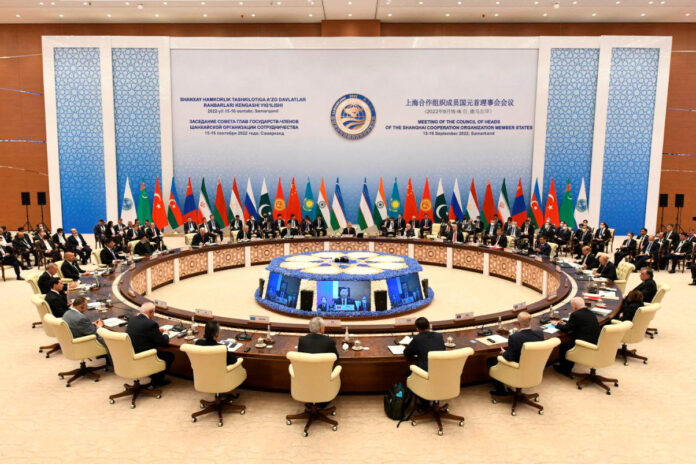Pakistan continues to play a pivotal and multidimensional role within the Shanghai Cooperation Organization (SCO), with a growing influence in areas such as security coordination, economic connectivity, poverty alleviation, and sustainable development, according to Prof Cheng Xizhong, Senior Research Fellow at the Charhar Institute.
Speaking on Saturday, Prof Cheng highlighted Pakistan’s expanding contributions ahead of the China-SCO Local Economic and Trade Cooperation Conference, scheduled for July 17–18 in Qingdao, where a Pakistani delegation will participate in key economic discussions.
As a frontline state in counter-terrorism, Pakistan’s active involvement in the SCO’s Regional Anti-Terrorist Structure (RATS) is of critical practical importance. The country is set to serve as rotating chairman of RATS from 2025 to 2026, enhancing its leadership in intelligence sharing and coordinated regional security operations.
In the context of Afghanistan, Pakistan plays a central role in the SCO-Afghanistan Contact Group, promoting regional dialogue and urging member states to offer economic support to the war-torn country, helping to stabilize the broader region.
Economically, Pakistan has positioned itself as a connectivity hub. The China-Pakistan Economic Corridor (CPEC)—a flagship Belt and Road Initiative project—has not only boosted domestic infrastructure but also linked Central Asian nations to the Indian Ocean, deepening regional trade integration. The importance of CPEC was formally acknowledged in the Joint Communiqué of the 23rd Meeting of the SCO Council of Heads of Government held in Islamabad, where it was included in the SCO’s broader regional connectivity strategy.
Pakistan also leads on the social development front. As permanent chair of the SCO Special Working Group on Poverty, the country spearheaded the “Digital Social Safety Net” framework using China’s big data technology. This initiative has already supported 2.3 million low-income families and aims to expand to other member countries by 2026.
Agricultural cooperation has also flourished. In collaboration with China’s Northwest A&F University, Pakistan established a joint laboratory for stress-resistant crop breeding. The partnership has yielded drought-resistant cotton and cold-tolerant wheat varieties, which are now being adopted in Tajikistan, Kazakhstan, and other Central Asian countries—resulting in 30% higher grain yields. Pakistan is also set to host the SCO Agricultural Technology Expo in 2025, advancing the exchange of agri-science innovations across the region.
Prof Cheng emphasized that Pakistan’s strategic location—linking South Asia, Central Asia, and the Middle East—has made it a crucial pillar in the SCO’s East-West Connectivity agenda. He noted that Pakistan’s evolving role within the organization has transitioned from that of a participant to a designer, contributing significantly to the SCO’s stability, development, and sustainability goals.
Despite facing internal economic pressures and external geopolitical challenges, Pakistan remains committed to the SCO’s vision. With several initiatives lined up under the “Sustainable Development Year” program in 2025, the country is expected to emerge as a model for South-South cooperation, he added.




